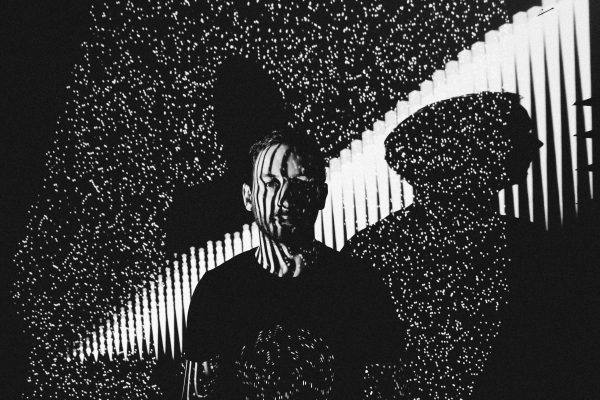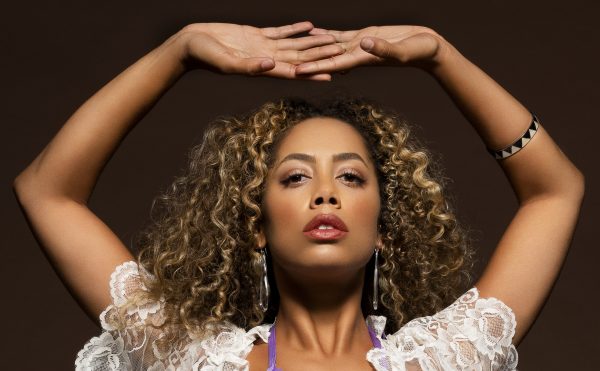
Soundtracking the emergency: Is there space for climate change in dance music?
2019 feels like the year that climate change leapt out of the margins and into the mainstream. With youth-led school strikes, the UK government declaring a ‘climate emergency’, protesters locking down parts of central London for more than a week, and record-breaking heatwaves making headlines around the world, the issue has been impossible to ignore.
But if climate change has finally been forced up the political agenda, our cultural response still feels pretty patchy. A recent study by BAFTA found that mentions of ‘climate change’ in TV dramas are about equal with mentions of ‘rhubarb’ and ‘zombie’, and well behind ‘cake’ and ‘cats’. The crucial cultural signals we need to get our heads around the scale and urgency of the issue are mostly missing in action – and electronic music is no exception.
For most people, the club is a place to forget your troubles, so perhaps it’s no surprise that the harsh realities of a rapidly warming world don’t get much of a look-in. But dancefloors have also always been political places (and still are around identity politics). So is there space for climate change in dance music? Can electronic artists help craft the soundtrack to the rapidly unspooling story of the 21st century?

Mesh records boss Max Cooper has pioneered the inclusion of big scientific ideas in his audio and visual output. “Honestly, I’ve never thought of looking at climate change as a concept for a show or video,” he explains. “I look for ideas which have beautiful visual representations, things which make for weird and wonderful stories. Climate change feels messy and depressing to me”.
Cooper’s hesitation to put climate change centre stage is entirely understandable. Only a tiny handful of artists, like Bjork or ANOHNI, have successfully crafted credible songs that face down climate change directly. And ANOHNI’s bombastic, apocalyptic, uncompromisingly bleak ‘4 DEGREES‘ definitely isn’t for everyone.

Canadian artist Jayda G has done more than most to work environmental themes into her music, linking the tracks on her debut album (released earlier this year on Ninja Tune) to concepts from her Masters research into human impacts on Orcas in the Pacific ocean. She’s a rare example of an electronic artist who speaks openly and candidly about climate change, and runs semi-regular London events that showcase young environmental scientists, talking about their research to a crossover audience.
“I think a lot of [artists] are holding back because climate change or climate politics in general hits home in a very deep way” – Jayda G
“I think a lot of [artists] are holding back because climate change or climate politics in general hits home in a very deep way… I think people step back and say, ‘Ok, what is there that I can actually do, I feel powerless,’ and another way that people react to feeling powerless is just disengaging. That’s not just for electronic artists, I think that goes for a lot of people.”
That’s not to say artists aren’t politically engaged, or are burying their heads in the sand. But it does feel as though there’s something uniquely challenging about climate change that makes it hard for musicians to craft a credible creative response.
“This is something I feel passionately needs taking a deep and mindful look at, and then action needs taking, and as soon as possible, if we want to continue to be able to make and perform music,” says Welsh producer and vocalist Kelly Lee Owens. “I think it’s something that has only just fully filtered into people’s consciousness in a profound and real way, and it takes time to integrate your place within it on a personal and professional level.”
For many artists, there’s a deserved nervousness about the Bono-ification of the issue, and a policy of not preaching what they can’t practice is arguably a wise move.

“I think the conversation is starting to happen, but when we see more efficient tour routes and people reducing flights, that’s when I’d be confident to say a shift is happening,” says Darwin, a Berlin-based DJ and one third of the group behind a new project called Clean Scene, a platform making it easier for DJs to recognise and reduce their impact on the environment. “The reaction [to Clean Scene] far exceeded anything I could have expected, almost overwhelmingly so, which gave me a lot of faith that people really do want to help, are aware of the issue, and are excited about being able to opt into an initiative like this,” Darwin explains.
The Clean Scene platform follows the announcement of a new initiative led by Australian rock musicians, FEAT (Future Energy Artists), where touring acts invest in solar farms, described on their website as “an artist-led movement to reshape the environmental legacy of the music industry.” Festivals seem increasingly aware of their carbon footprint and environmental responsibilities, organisations like Julie’s Bicycle provide behind-the-scenes support across the arts, and you can find plenty of ecological references dotted around the electronic music landscape (e.g. Leif’s new Whities release, or the super-abstract ‘eco-grime‘ sub-genre).
There are also encouraging signs that having a voice on climate change doesn’t need to mean an overwrought musical ‘statement’. Warp Records’ GAIKA recently interviewed the Labour leader Jeremy Corbyn for Dazed magazine, and while Corbyn waffled his way disappointingly through the conversation, GAIKA’s analysis of climate change as a legacy of colonialism – white European polluters benefiting at the expense of changes being felt first and hardest in countries they once controlled politically – was powerful and precise. As an artist, GAIKA used his platform to shape the agenda – it doesn’t need to mean writing protest songs about our impending ecological doom.
“It’s our responsibility to give back and to restore balance before it’s too late” – Kelly Lee Owens
“I think that dance music and music in general always has room for speaking our mind because that’s what art is – art is social commentary, exposing the world to certain underbelly issues that should be put to the light,” says Jayda G. And for Kelly Lee Owens, the power of the collective offers something that individual artists can’t: “I’d love to create a collective of musicians who would pledge to hold venues and especially festivals accountable – in switching their power to renewable or sustainable energy… it’s our responsibility to give back and to restore balance before it’s too late”.
For club DJs, the elephant in the room is the frequent-flyer model that drives the scene. Often making multiple flights in a weekend, DJs notoriously spend more time in airport lounges than they do at home. And although the responsibility for this culture is shared with promoters, agents, managers and even audiences, in ten years time a business model based on making hundreds of flights per year is going to stand out like a sore thumb.
But is it fair to expect artists to make drastic changes to cut their own carbon footprints? Jayda G argues that it’s a big ask: “I think although you could open up space for people to reduce their air miles, I don’t know if that actually would work because you’re asking people to take away their livelihood”.
That doesn’t mean that electronic musicians aren’t making some changes: like others in the industry, Max Cooper’s Mesh label uses fairly traded t-shirts, and is exploring an eco-vinyl model for future pressings, which produces less waste. But commenting on the idea of giving everyone one ‘tax free’ and affordable flight per year, with a rapidly escalating premium added to each additional plane journey, Cooper observed that “it would stop people travelling a lot for any reason, which would be the end of my music career, and to all but the highest earners in the industry. But I’d rather that than continuing to bury our heads in the sand.”
For electronic artists and DJs, as for everyone else, there are some tough choices coming down the line. That shouldn’t mean guilt trips, finger-pointing or performative behavioural tweaks, but it does mean taking a long hard look at our personal and professional choices, our business models, our expectations about what’s normal and what’s right, and ultimately a re-imagining of how we live and work. Artists, and others with cultural influence, have not just a responsibility but an unrivalled platform and opportunity to lead from the front and catalyse the social changes that must now start sweeping in.
“I think climate change can feel surreal and all too real at the same time” adds Darwin. “It’s terrifying yet abstract in ways… but hey, so was sexism and we got our little heads around that pretty quick in recent years to make the changes needed. It takes a few loud voices and a trusting community behind them to make big moves, and unfortunately I haven’t seen a lot of key players in our scene really yelling about it yet. But we are ready to do that… and we need as many allies as we can get.”













